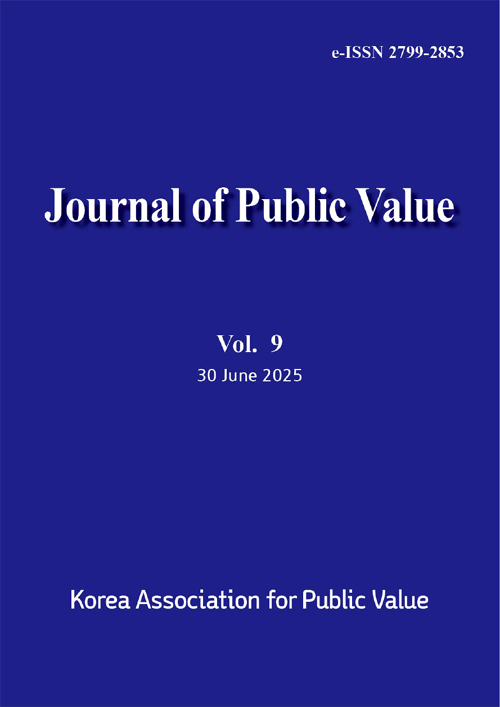학술논문
Making Good Citizens from the Authoritarian Period to the Reform Era in Indonesia
이용수 0
- 영문명
- 발행기관
- 한국공공가치학회
- 저자명
- Samsuri
- 간행물 정보
- 『Journal of Public Value』Vol. 9, 99~104쪽, 전체 6쪽
- 주제분류
- 사회과학 > 사회복지학
- 파일형태
- 발행일자
- 2025.06.30
4,000원
구매일시로부터 72시간 이내에 다운로드 가능합니다.
이 학술논문 정보는 (주)교보문고와 각 발행기관 사이에 저작물 이용 계약이 체결된 것으로, 교보문고를 통해 제공되고 있습니다.

국문 초록
Purpose: Universally the idea of a good citizen becomes an ideal sought after by every nation through its national education policies. The profile of a good citizen is largely determined by the perspective of each country's government. This article examines the dynamics of developing the profile of a good citizen in Indonesia during President Suharto's administration (New Order regime) up to the reform era.
Method: A comparative study was conducted on several civic education policy documents displayed under various school curriculum nomenclatures during both periods. These documents included the regulations, and curricula civic education.
Results: The study's findings indicate that in both governmental periods, the profile of a good citizen was based on national values derived from Pancasila (the five principles: belief in God, humanity, unity/nationalism, democracy, and justice). The difference lies in how, during the New Order, the profile of a citizen was portrayed as an Indonesian who supported the development rhetoric to achieve national objectives. The authoritarian political system of the New Order considered harmony as a primary value across various dimensions. In the reform era, the aspiration for democratization, as a solution to the multidimensional crisis of the New Order government, was reflected in various curricular nomenclatures such as Civic Education (2006 Curriculum), Pancasila and Civic Education (2013 Curriculum), and Pancasila Education (Independent Curriculum, 2022).
Conclusion: This article concluded two aspects. Firstly, although both aimed to establish efforts to shape the profile of good citizens, they were top-down in nature. This means that the state, through government policies of each period, held the authority and primary right to determine how and what constitutes a good citizen. Secondly, the political atmosphere of each regime era shaped various citizen profiles aligned with their respective national political interests. During the New Order era, the regimentation of Pancasila as the character of a good citizen was institutionalized through the P4 policy. In the reform period, the democratic atmosphere that became the political norm post-authoritarianism has not fully reflected the profile of good citizens with a democratic spirit rooted in Indonesian identity.
영문 초록
목차
1. Introduction
2. Good Citizens Education policy in Indonesian New Order Contexts
3. “New Paradigm” for Good Citizens in Indonesian Post-Authoritarian Contexts
4. Good Citizens by Character Education Design
Dakhidae 2001:26).
5. Reviving Pancasila values within Curriculum 2013 and Independent Curriculum (Kurikulum Merdeka).
6. Conclusion
7. References
해당간행물 수록 논문
- Journal of Public Vol. 9 Contents
- Rise of the Rest: It takes Two Tier-Twos to Tango
- Morocco’s African Foreign Policy: The North Africa Hegemon or Cooperation Partner?
- The Public Value of Psychological Capital: Evidence from Skilled Migrant Lecturers in South Korea
- Public Value Crisis in the Information Age: Based on the Image of Consumer Heroes
- Applying Textual Embeddings for Numerical Data Clustering
- Making Good Citizens from the Authoritarian Period to the Reform Era in Indonesia
- Exploring the Potential Expansion of Korean Higher Education for Lifelong Learning in Morocco
- Remembering our Dead: The Practice of Death Veneration in the Philippines and South Korea
- Developing a conceptual framework of ethical leadership in research process for graduate students in Thailand
- The Unexchangeable Value of Humanity in Artificial Intelligence Ethics: Uniqueness of Memory Mechanisms and Physical Identity
- Artificial Intelligence (AI)-based Autonomous Weapons (AWs), its Ethical Task, and its implication to Moroccan Military Innovation
- A Review of Curricular of the Military Academies in the Republic of Korea
- A Comparative Analysis of Embedding Techniques and Clustering Algorithms on Benchmark Datasets
- Ethical Global Citizenship Education for the Common Good
- Developing Character Values of Nationalism and Integrity Through the Work Programs of the Muhammadiyah Autonomous Organization in Indonesia
참고문헌
관련논문
사회과학 > 사회복지학분야 BEST
- 사회복지의 법적 실천에 관한 탐색적 연구
- 한국과 미국의 사회복지 윤리강령 비교연구 : 비밀보장, 이중관계, 문화적 다양성, 결함이 있는 동료를 중심으로
- 청년실업의 원인과 해결방안에 관한 연구
사회과학 > 사회복지학분야 NEW
- 한국가족복지학 제30권 제3호 목차
- 어린이집 교사 대 아동 비율 개선 이후 변화에 대한 보육교직원의 인식
- 특성별 지역아동센터 지원사업 현황 및 개선방안 - FGI 조사를 통한 관계자 의견 탐색
최근 이용한 논문
교보eBook 첫 방문을 환영 합니다!

신규가입 혜택 지급이 완료 되었습니다.
바로 사용 가능한 교보e캐시 1,000원 (유효기간 7일)
지금 바로 교보eBook의 다양한 콘텐츠를 이용해 보세요!



